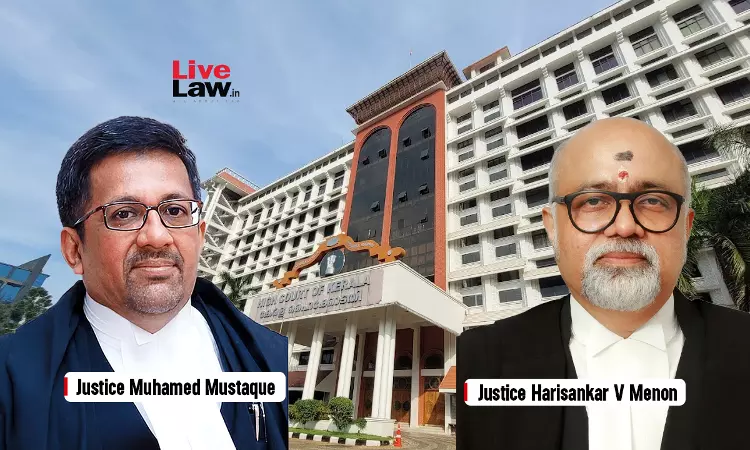- Home
- /
- High Courts
- /
- Kerala High Court
- /
- S.36(1)(vii) Income Tax Act |...
S.36(1)(vii) Income Tax Act | Closing Individual Debtor Accounts Not Mandatory For Bad Debt Deduction: Kerala High Court
Mehak Dhiman
27 Oct 2025 4:55 PM IST
The Kerala High Court stated that closing individual debtor accounts is not mandatory for bad debt deduction under Section 36(1)(vii) of the Income Tax Act, 1961. Section 36(1)(vii) of the Income Tax Act, 1961, deals with the deduction of bad debts. It allows the taxpayer to claim a deduction for bad debts that have been written off in the books of accounts during the previous...
The Kerala High Court stated that closing individual debtor accounts is not mandatory for bad debt deduction under Section 36(1)(vii) of the Income Tax Act, 1961.
Section 36(1)(vii) of the Income Tax Act, 1961, deals with the deduction of bad debts. It allows the taxpayer to claim a deduction for bad debts that have been written off in the books of accounts during the previous financial year.
Justices A. Muhamed Mustaque and Harisankar V. Menon, after referring to the case of Vijaya Bank v. Commissioner of Income Tax and Another, opined that there is no requirement for the individual debtor's account to be closed for claiming a deduction under Section 36(1)(vii) of the Income Tax Act.
In this case, the dispute is with reference to the entitlement for deduction under Section 36(1)(vii) of the Income Tax Act, 1961.
The assessee/appellant had sought deductions under Section 36(1)(vii) of the Income Tax Act, representing “the provision for doubtful debts”.
The assessment was finalised, refusing to extend the deductions claimed as above, essentially because the “individual debtors' accounts and debts” were not written off as prescribed by the statute.
The assessee challenged the assessments, placing reliance on the dictum laid down by the Apex Court in Vijaya Bank v. Commissioner of Income Tax and Another [(2010) 323 ITR 166(SC).
The first appellate authority referred to the balance sheet of the assessee and found that the provisions for bad and doubtful debts for the respective years had been written off, in tune with the principles laid down by the Supreme Court in Vijaya Bank (supra). Accordingly, the appeals were allowed.
The revenue challenged the order before the Tribunal. The Tribunal, by the impugned order, found that “the individual debtor account (in the separate debtor ledger) would have to be formally closed, removing it from this ledger”, and found that the findings of the first appellate authority were incorrect.
Consequently, the appeals were allowed, thereby restoring the assessments, confirming the disallowances towards “provision for bad and doubtful debts”.
The bench referred to the case of Vijaya Bank (supra) where the Supreme Court found that the assessee therein, apart from debiting the profit and loss account and creating a provision for bad and doubtful debts, the corresponding amount from the loans and advances/debtors on the assets side of the balance sheet was also obliterated and hence, at the end of the year, it is the net figure that was available representing the bad debt.
This was held to be in tune with the provisions of Section 36(1) (vii) of the Act, since that amounted to actual write off by the Supreme Court.
The Apex Court went on to consider the second question framed by it, with respect to the requirement to close the individual debtor's account, with reference to the provisions of Section 36(1)(vii). The Supreme Court found that it is only the apprehension of the revenue that, without doing so, the assessee may claim a deduction twice over, which can only be considered as apprehension, noted the bench.
Thus, there is no requirement for the individual debtor's account to be closed for claiming a deduction under Section 36(1)(vii). The observations made by the Tribunal cannot be sustained, added the bench.
In view of the above, the bench allowed the appeal and set aside the order of the Income Tax Appellate Tribunal.
Case Title: Geofin Comtrade Limited v. Asst. CIT
Case Number: ITA NO.51 OF 2024
Citation: 2025 LiveLaw (Ker) 686
Counsel for Appellant/Assessee: Abraham Joseph Markos
Counsel for Respondent/Department: Jose Joseph



